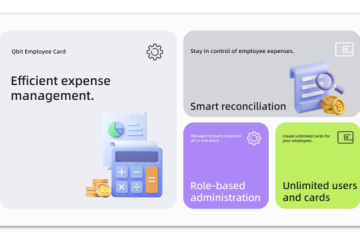Kymn Harp, a distinguished member of the Executive Committee at Chicago based law firm, Robbins DiMonte, as well as Chair of the firm’s Ethics Committee, brings over 40 years of extensive experience to his representation of clients in commercial real estate and business transactions. With a practical approach to project and transaction management, Kymn focuses on clear identification of objectives and challenges, thorough due diligence, and creative problem-solving, ensuring his clients fulfill their transaction objectives both before and after closing.
Kymn negotiates and drafts public-private partnerships, air-rights development agreements, LLC agreements, private-placement memoranda for real estate investment, development financing agreements and loan documents, tenant-in-common agreements, reciprocal easement agreements, and commercial and industrial leases. His wide-ranging experience and sophistication in negotiating these agreements and more reflects his versatility and scope of expertise in commercial real estate development, ownership structuring, and transactions.
In addition to real estate, Kymn represents enterprises, owners, and investors in business management law. He works with his firm’s construction attorneys, tax attorneys, and other specialists to solve all of his clients’ transaction issues. Kymn is an accomplished real estate expert witness who supports commercial litigators, both within his firm and outside as well. From handling commercial real estate development and financing, to distressed loan workouts involving commercial real estate collateral, and investor-side commercial, industrial, multi-family, and mixed-use condominium reconversions, Kymn is intricately immersed in all aspects of commercial real estate.
Kymn is an industry thought leader who writes and speaks for the Illinois Institute for Continuing Legal Education and the Illinois State Bar Association. His blog, Harp-OnThis.com, features many of his real estate articles and white papers. For Illinois commercial real estate professionals, his two books, including Illinois Commercial Real Estate – Due Diligence to Closing, with Checklists (2016 edition), are crucial. Kymn serves as an appointed member of the Illinois State Bar Association Real Estate Law Section Council and has been selected by his peers as a 2024 Illinois Super Lawyer in real estate and business transactions.
Kymn focuses his practice heavily on adaptive reuse, which is the practice of converting old structures to a modern use. Adaptive reuse breathes new life into urban communities and reduces building material consumption, helping to sustain the environment and local economies. Kymn stresses the critical need for due diligence in adaptive reuse initiatives, especially in the examination of market demand, access, use, and finances to assure project success.
Identifying appropriate buildings for adaptive reuse is the first step. This includes iconic buildings on prime urban sites that are functionally obsolete, architecturally significant buildings with outmoded interiors, and landmark buildings with historical significance but no contemporary usage. Reusing these buildings helps revitalize neighborhoods and preserve cultural diversity.
Economic incentives are often vital for adaptive reuse initiatives. Redevelopment designed to improve the quality of life within a community may be funded in part by state, local, or federal incentives. Tax increment financing (TIF) is a legislative incentive frequently available to pay redevelopment costs to address environmental contamination, provide sewers, waterlines, roadways, and other vital infrastructure, as well as to rehabilitate and adapt older buildings. In some states, the TIF incentive is even available for new building construction.
Adaptive reuse of certified historic buildings placed in service more than 50 years ago, and non-historic buildings built before 1936, may additionally qualify for historic preservation tax credits. Municipal economic development incentives like real property tax abatements and sales tax revenue sharing may also be available.
Sustainable adaptive reuse can be a major benefit to developers as well as communities. Existing foundations and structural components may be less expensive to reuse than to dismantle and replace. This method promotes sustainability by decreasing the need for new building materials. However, revitalizing an existing building takes in-depth due diligence to carefully assess its condition, evaluate its adaptability to the envisioned new use, and to establish a workable game plan to achieve the intended result.
As with commercial development generally, market demand is a key consideration. From the beginning, Developers must make a focused market assessment to anticipate market demand for the new use at the time of completion, which may be years after project planning begins. Likewise, roadways, traffic flow, availability of parking and public transportation, and compliance with accessibility regulations are all important. The property’s usage must take into account zoning, private land-use restrictions, easements, utilities, environmental concerns, and structural challenges.
Calculating a reliable budget of both hard costs and soft costs for development of the project, as well as necessary equity requirements and the cost or raising capital are essential. Consideration should be given to taking advantage of economic development incentives to offset development expenditures and maximize returns when available. A financial option often overlooked by Developers is the occasional opportunity to raise funds through licensing of naming rights for notable projects or project features.
Through his comprehensive and meticulous approach, Kymn Harp ensures that each real estate transaction and adaptive reuse project is executed smoothly, complies with governmental regulations, and aligns with the investor’s strategic goals. By leveraging Kymn’s deep knowledge and experience, investors can optimize their real estate portfolios, maximize returns, and make a meaningful impact on their local skyline.




